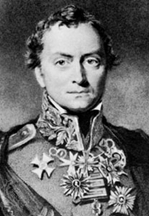Hardinge, Lord
Hardinge, Lord (1785-1856) Governor General of India from July 1844 to January 1848. He, at the age of fifty-nine, succeeded his brother-in-law Lord ellenborough who was recalled. Hardinge, a professional soldier, held high offices in England before his assignment in India. During the first half of his tenure he made preliminary plans for the promotion of the railway system in India and the Ganges Canal.

Following bentinck, he suppressed sati, infanticide and human sacrifices, which the orthodox Hindus still practised, particularly in the hilly areas of Orissa. He established schools and introduced Sunday as the weekly holiday in government offices. He was involved in the first Sikh war (1845-46) which was brought to an end by the treaty of Lahore. According to the treaty the Sikhs ceded all the Sutlej territories and the areas lying between the Sutlej and the Beas and agreed to pay an indemnity of fifty lakh rupees. The Sikhs also surrendered Kashmir which was handed over to Golab Singh, the Raja of Jammu, for eighty lakh rupees.
An army of occupation was stationed at Lahore and the Sikh State was put under regency. The Sikh army was reduced to twenty thousand infantry and twelve thousand cavalry.
Hardinge was made a Viscount at the end of the first Sikh war. He retired in 1848 and held high offices in Great Britain, first as the Master of Ordnance and then as the Commander in Chief. He improved the British army in many ways. He died on 24' September 1856. His statue was subsequently erected in Calcutta. [KM Mohsin]
